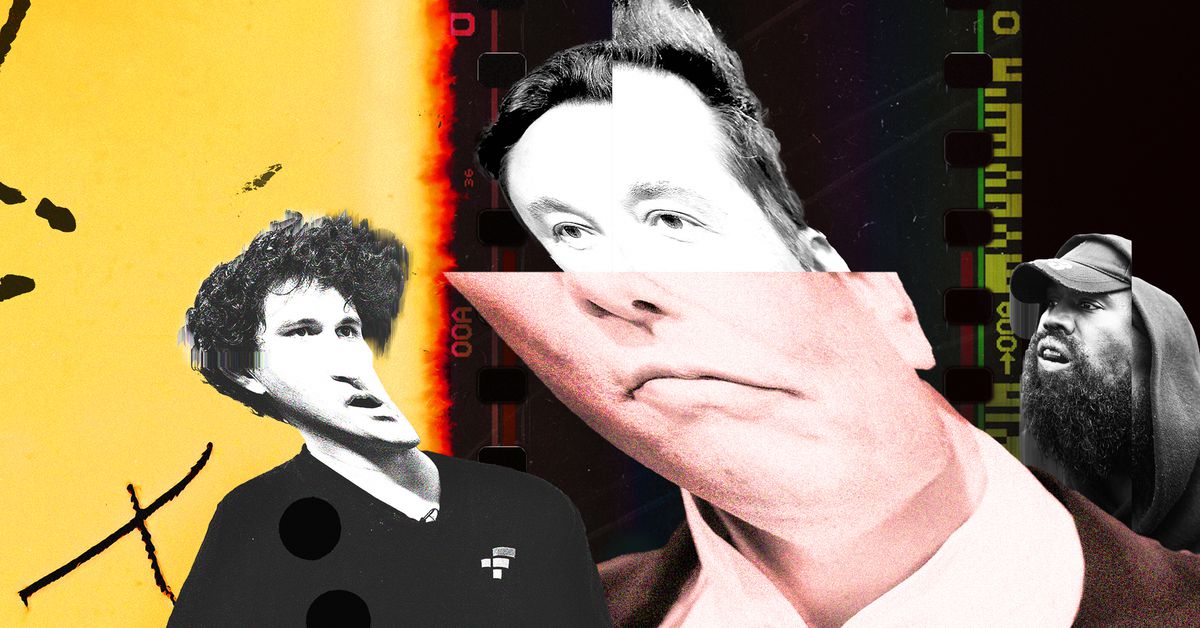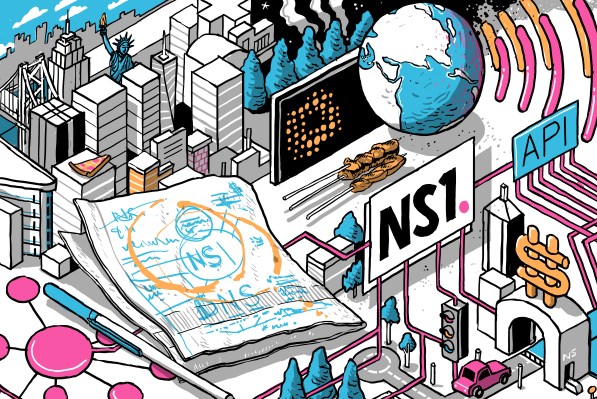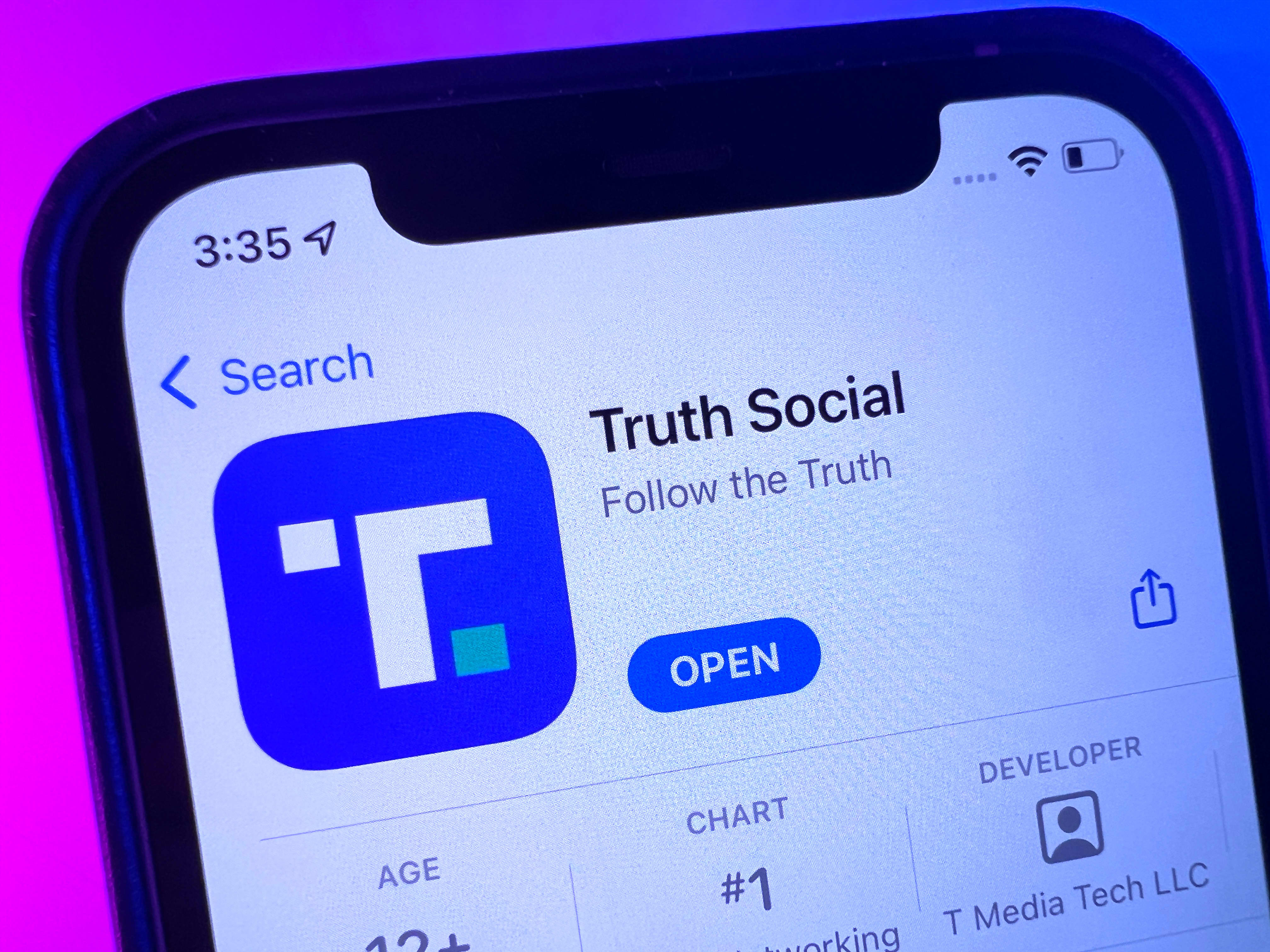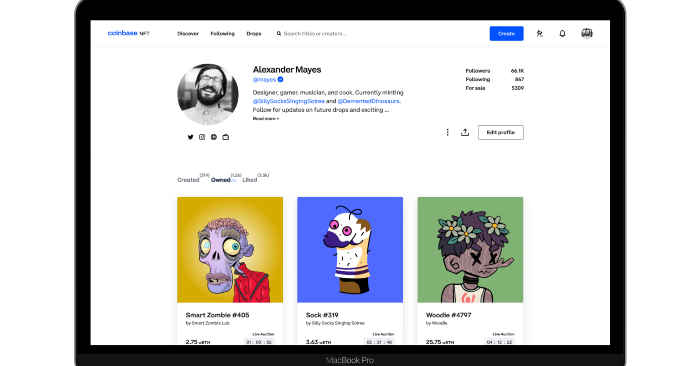The billionaire vibe shift
Amanda Northrop/VoxIt was year the billionaires showed who they really are. At first, 2022 looked like it would be another celebratory year for the extremely rich. In early January, Tesla stock was trading at well over $300 per share....

At first, 2022 looked like it would be another celebratory year for the extremely rich. In early January, Tesla stock was trading at well over $300 per share. Its CEO, Elon Musk, had recently been named Time’s 2021 Person of the Year. He was Earth’s richest person, an exemplar of capitalism gone right, a visionary building companies that would benefit humanity and not just line his own pockets. He was so intelligent that he purportedly taught himself rocket science, so ambitious that he made the electric car sexy in an effort to stem the climate crisis.
As 2022 comes to a close, the awe Musk enjoyed has turned into shock and jeers. Fans have defected. Tesla investors are growing mutinous (at publication time, Tesla stock was languishing around $150). Musk was even recently booed by the audience at Dave Chappelle’s comedy show. In a Twitter poll he posted over the weekend, Musk asked whether he should step down as head of Twitter, saying he would “abide by the results of this poll.” Nearly 60 percent of respondents answered yes.
A similar riches-to-rags story unwound Sam Bankman-Fried, the erstwhile crypto billionaire who told the public he was using the gangbuster profits from a flashy but risky industry to change the world for good — making him a media darling who graced the cover of Fortune magazine in September. Other billionaires soaked in excess, buying private jets and superyachts; he was sleeping on bean bag chairs at his office and thinking of how to donate what he earned. Then, almost as suddenly as he had established himself as an altruistic public figure, his cryptocurrency exchange, FTX, imploded, his billions vanished, and he was arrested on charges of fraud and money laundering, among other crimes. It turned out that his monkish pose wasn’t quite true.
Or consider Ye, once a critically acclaimed superstar often called a genius. For many years he exhibited insulting, toxic behavior, but it wasn’t until late 2022, when he made a series of escalating antisemitic rants that ended with posting a swastika on Twitter, that it solidified into a definitive reckoning. High-fashion institutions cut ties with him, and Adidas ended its collaboration with him on the fashion line Yeezy, leaving Ye no longer a billionaire, according to Forbes.
They and plenty of other billionaires, such as Bill Gates and Warren Buffett, have long been viewed by the public and policymakers as thought leaders, geniuses, benevolent stewards of society. The ultrarich often have intimate access to Washington power players and are lavished with positive attention in the press. But polls show that distrust and skepticism of billionaires have been building in recent years; in a Vox/Data for Progress poll last year, 72 percent of likely voters surveyed said that it was unfair that billionaires had become richer during the pandemic.
It was against this backdrop that this year’s billionaire controversies unfurled, setting off a public reappraisal of the richest in society. It was the end of the “billionaire genius” myth, and the notion that wealthy elites should be taken at their word. 2022 marked the peak of what can best be described as a billionaire vibe shift.
Part of the public’s captivation with billionaires in 2022 is the schadenfreude of watching the powerful tumble. This year also drove home that the ultrarich aren’t privy to greater wisdom or savvier than the rest of us, said Anand Giridharadas, author of Winners Take All: The Elite Charade of Changing the World. Musk’s baffling, impetuous decisions and reversals at Twitter, for example, have yanked back the curtain on how Musk leads his companies. He “just revealed billionaires are not smarter than you,” Giridharadas told Vox. “They are people who happen to have a billion dollars or more.”
The revelation that billionaires are not an exceptional group of people except for the size of their net worth marks a schism from the idea that the wealthy are demigods. Silicon Valley’s many billionaires insist that technology will transform and save the world. The infamous robber barons, like Andrew Carnegie and John Rockefeller, often remade their image, after a career of exploiting their workers, as magnanimous philanthropists.
“I think [billionaires] internalize, ‘Look, I’m a billionaire, therefore I’m not only good at amassing wealth — I’m good, period,’” said Peter Goodman, a New York Times economics journalist and author of Davos Man: How the Billionaires Devoured the World. “Because we all want to believe that our society is fair and rewards the right thing.”
But the problems of American plutocracy are often hard to see. “These systems that uphold billionaire power and privilege are really largely invisible,” said Giridharadas. “You can’t really see into their bank accounts; you know about 0.1 percent of the lobbying that goes on.” Charles and David Koch, for example, are now well-known for spending their oil fortune on disseminating a right-wing, anti-government worldview from think tanks to universities to the uppermost chambers of power in Washington — often through undisclosed donations. But for a while, they operated quietly. They’re far from alone. Research has shown that many billionaires engage in “stealth politics,” angling for unpopular policies, such as lowering taxes for the wealthy, under the radar. The usefulness of the very public reputational ruin of Musk and Bankman-Fried is that it offers a rare insight into what makes powerful, wealthy people tick. “Every now and then, these kinds of spectacular flare-ups become so important because they’re public biopsies,” Giridharadas said.
Musk’s text messages around his bid to purchase Twitter offered a glimpse at how wealthy people make decisions that have an impact on the rest of society. They were notable mostly for how unimpressive they were: He and his associates didn’t float novel, incisive ideas about how to improve a social media company. Most of the players, from moneyed investors to politicians, came off as merely obsequious.
In Bankman-Fried’s case, the disintegration of a well-known, highly valued crypto company added credence to crypto critics’ view that the industry, and the powerful players within it, are playing a confidence game. Bankman-Fried’s philanthropic commitments and his calls for reasonable crypto regulation certainly helped cement his public image, but they also fed people’s eagerness to trust and invest in crypto. He has now been charged with deceiving FTX investors, and the SEC alleges that he “orchestrated a years-long fraud,” rerouting FTX customer funds for his personal use. The fiasco has given the public a damning look at the dark side of the crypto industry.
The larger-than-life personas of billionaires like Musk, Bankman-Fried, and others, which cast them as hyper-intelligent and insightful, gained them a lot of influence. Musk in particular garnered an entrenched fan base for his humanity-saving mission and for his outlandish, troll-y online image. Margaret O’Mara, a professor of American history at the University of Washington and author of The Code: Silicon Valley and the Remaking of America, told Vox that the model of the “eccentric genius entrepreneur” has long been used to great success by the nation’s business leaders. “From Edison forward, you have these slightly quirky, very showman-like people,” she said. Edison was an especially skilled marketer who loved to put on spectacular events, such as lighting up the New York Times building in 1882.
Billionaires in America have also long benefited from a tradition of lionizing captains of industry. They were respected as self-made men, and there was a great belief in “the individual savior figure coming in to change everything,” O’Mara said.
“It’s the cowboy, it’s the rugged individualist,” she continued. “The reality is kind of far from the truth — cowboys would ride together.”
The American preoccupation with the genius savior dovetails with the American distrust of government and other public institutions; the conventional neoliberal wisdom is that institutions would be better, more efficient, if they were all run like businesses. Yet even trust in business appears to be changing. Data from both Pew and Gallup shows declining trust in most institutions, and notably, that now includes businesses too. The Pew results showed that 60 percent of those surveyed in 2021 said they had little or no confidence in business leaders, and according to Gallup’s 2022 survey, the public’s trust in big business hit a new low since the polling firm first measured the metric in 1973.
That’s not exactly surprising. US wages haven’t grown much since the late 1970s, and over the years, and particularly through the pandemic, increasing wealth concentration at the top has intensified conversations around excess corporate profits, labor exploitation, and the general miasma of financial precarity that most Americans exist in.
In recent history, there has been growing public awareness of the mechanics behind billionaire wealth creation, too, and a broader “recognition that nobody becomes a billionaire without engaging in some kind of manipulation of the system,” Goodman said. “There’s lobbying, there’s a perversion of the tax code, there’s probably exploitation of labor — there’s an undermining of the labor movement. There’s a perversion of democracy.” Since Citizens United v. Federal Election Commission, a 2010 Supreme Court decision allowing corporations and outside spending groups to contribute unlimited amounts of money to political campaigns, an increasing amount of dark money from the ultrarich has also poured into American politics.
“People were not connecting these pain points in their lives to what the group of people called billionaires was doing,” Giridharadas said. Now, the connections are more readily drawn: Amazon founder Jeff Bezos adding $75 billion to his net worth in the first year of the pandemic is seen as directly related to the unsafe working conditions and low pay of Amazon employees in that same period.
It’s hard to adequately emphasize the acceleration of wealth concentration in the past few years: more than $5 trillion was added to billionaires’ net worth worldwide between March 2020 and November 2021, according to an Oxfam report. That was more than the world’s billionaires had accumulated in the previous 14 years put together. Tech billionaires were the undisputed winners of the early pandemic years, raking in so much money that their huge losses in the 2022 downturn have failed to wipe out the gains. These companies’ founders and CEOs are doing fine; over a hundred thousand employees in the tech sector, however — including 10,000 at Amazon — have lost their jobs this year.
“We’re seeing more examples of how wealth comes at the expense of the vulnerable,” said Goodman.
Take the recent labor fight rail workers waged to win better working conditions. They were poised to go on strike if their demands — which included such basic benefits as seven paid sick days per year — weren’t met. A strike would have had a sweeping impact across the entire US economy, but Congress took that leverage away from rail workers, taking a vote that forced them to agree to a tentative agreement sans sick leave. Essential workers, not the rail companies, were asked to bend the knee to avoid a catastrophic strike. BNSF Railway, one of the companies employing workers involved in the labor dispute, is owned by Warren Buffett’s conglomerate Berkshire Hathaway; BNSF earned $6 billion in profits last year and has been accused of holding up the contract negotiations with the union this year. In September, Sen. Bernie Sanders called on Buffett to help broker a deal, but the renowned philanthropist — who has committed to giving away 99 percent of his wealth — did not publicly comment on the dispute.
Despite the evidence that their incredible riches are amassed at the expense of economic hardship for others, the wealthy elite rarely acknowledge their power and social position. Goodman pointed to Salesforce CEO Marc Benioff’s declaration last year that CEOs stepped up as heroes of the pandemic. “[Billionaires] spend a lot of time telling you that not only am I not the problem, I’m the solution to the problem,” he said.
As that narrative becomes less credible to the public, calls for change — like levying higher taxes on the rich — grow louder. In turn, billionaires have been airing their grievances, fixating on victimhood. Even Jeff Bezos, who typically has not waded into political debates, sniped at President Biden on Twitter this year over his statement that wealthy corporations should be taxed more.
Musk has been pounding the pulpit of free speech. His text messages showed that he was far from alone: Several people in his circle of rich friends and acquaintances echoed Musk’s basic thesis that Twitter had become too “woke” — a threadbare euphemism for left-wing progressivism and social justice. Ye, whose Twitter account was suspended again, hasn’t just been making antisemitic rants — for years now he has portrayed the public censure of his increasingly racist and misogynistic views as an example of cancel culture. These billionaires, who are among the wealthiest and most well-connected people in the world, would have their audience believe that they’re persecuted and speaking truth to power.
Bankman-Fried, too, seemed to chafe somewhat at the strictures of what’s socially acceptable to say — of keeping up a palatable billionaire image. In a Vox interview over Twitter DMs, he admitted that he “had to be” good at talking about ethics because it was part of a “dumb game we woke westerners play where we say all the right shiboleths [sic] and so everyone likes us.”
That succinctly says the unsayable out loud. The long-running narrative of the brilliant, benevolent billionaire has ensured the public’s awe and deference. When this myth is no longer compelling, there’s a crisis in the plutocracy.
What this year has made vivid is that billionaires are as mundane as the rest of us, with some virtues but also plenty of vices, sometimes inspiring and often disappointing — except that they have billions of dollars at their disposal. And that power allows them to make stunningly bad decisions that impact millions of people.
Giridharadas joked that he would like to thank the billionaires. “At some level, it’s valuable when these people make it so explicit. I feel like it’s a big sacrifice to educate people about the real nature of the system.”

 Tfoso
Tfoso 































